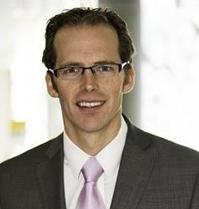A/Prof Andrew Weickhardt

I am a consultant medical oncologist with a major interest in genitourinary cancers, which include bladder, prostate, kidney and testicular cancers. I also have expertise in other cancers as well as palliative care.
I trained at The University of Melbourne and then subsequently Royal Melbourne Hospital, Peter MacCallum and the Austin Hospital. After completing my oncology training, I spent two years researching new targeted therapies (such as antibodies) that may work better than chemotherapy and have less side effects. I spent two years training at one of the largest cancer hospitals in the USA, in Denver at the University of Colorado Cancer Centre.
I completed my medical degree as the top ranked student academically for both my final year, and overall for the entire six year degree. I was also awarded prizes while at medical school and then Royal Melbourne Hospital for my patient manner and communication skills, as well as my mentoring and teaching.
I have published over 20 peer reviewed publications, in prestigious journals such as the Journal of Clinical Oncology, Cancer, and Clinical Cancer Research. My research on targeted therapies has been recognised with multiple awards including two American Society for Clinical Oncology Merit Awards.
I have a joint appointment between Austin Hospital (The Olivia Newton John Cancer and Wellness Centre), and the Olivia Newton John Cancer Research Institute. I have a strong interest in drug development, both in laboratory research but also in early first in human clinical trials. I am in charge of the genitourinary clinical trials program at the Austin Hospital, and am also involved in first in human trials. Some of these trials may be suitable for patients that I see in my private rooms.
Cancer is treated usually with surgery, radiation, hormones or chemotherapy, and often a combination of these approaches. Surgery and radiation are often effective for controlling local growth of cancer. Hormones and chemotherapy are more useful in treating cancer that has spread to distant sites in the body.
These treatments may cause side effects, and I will endeavour to try and find the most effective treatment while trying to preserve your quality of life. I will discuss with you how this may be achieved, and what your goals are. Newer treatments that are promising may only be available to you if you participate in a clinical trial, and I can discuss clinical trial options available to you.
Many of my patients are interested in complementary and alternative medical approaches to treatment, or at least have questions regarding these treatments. Often this is because a neighbour, friend or relative has heard of a ‘miracle cure’. I am open minded regarding concurrent parallel use of these complementary treatments, but like you to be open with me and tell me what you are taking alongside the traditional medical approach I advocate. Some of these complementary approaches are particularly useful in improving quality of life, but some can be harmful (either the herbs interacting with the medicine, or financially!).
As a husband and father of three children, I appreciate how important involvement of your family is with your health care. I endeavour at all times to have clear communication with you and your family, either in the rooms, or via email or phone. I also appreciate how stressful it can be dealing with cancer, and can assist in integrating psychological support with your cancer care.
Please ask questions, not matter however minor they may seem to you.